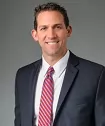With the gift/estate tax exemption of $11,580,000 (in 2020) set to expire or "sunset" on December 31, 2025, many advisors have encouraged high net worth clients to make large taxable gifts and "use up" their gift tax exemption during lifetime and shelter future income and appreciation in the gifted assets from estate tax at death. However, some advisors have expressed concern that making a large gift and using the current exemption may trigger additional transfer tax if the estate tax exemption is reduced in the future, effectively allowing the IRS to "claw back" the used exemption in excess of the estate tax exemption in effect at the taxpayer's death.
On November 22, 2019, the IRS issued final regulations confirming that used gift tax exemption will not be "clawed back" upon a taxpayer's death, even if the taxpayer made gifts in excess of the estate tax exemption ultimately in effect at the taxpayer's death. Further, a surviving spouse who received unused estate tax exemption from a predeceased spouse — referred to as the Deceased Spousal Unused Exemption ("DSUE") — can utilize the DSUE amount during lifetime or at death without fear of a clawback or loss of the DSUE.
Wealthy clients should focus on planning and implementing strategic taxable gifts over the next six years to utilize their gift tax exemption and take advantage of the higher exemption amount while it is in effect. While the law is scheduled to sunset on December 31, 2025, taxpayers should not delay making gifts until this date. Tax laws are subject to change in any year, but with the presidential election looming in 2020 and a possible shift in the makeup of Congress, a reduction in gift and estate tax exemptions could take place prior to the end of 2025. Wealthy taxpayers should be proactive in planning their gifts to maximize long-term tax benefits to their family by making leveraged and/or strategic gifts of income-producing and/or appreciating assets.
The content of this article is intended to provide a general guide to the subject matter. Specialist advice should be sought about your specific circumstances.
